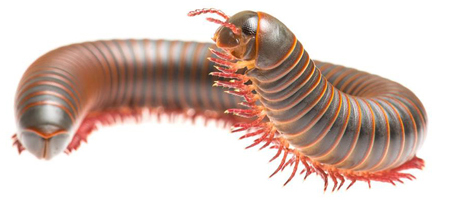diploneural
(adjective), more diploneural, most diploneural
Relating to a body part; such as, certain muscles which are connected by two nerves from different sources.
diplopagus
(s) (noun), diplopagi
(pl)
Equally developed conjoined or connected together twins: Diplopagus is not a normal condition; however, it sometimes occurs when babies are born who are joined side by side and share one or more body organs.
diplophonia
(s) (noun), diplophonias
(pl)
The production of double vocal sounds: Diplophonia takes place when two tones of different pitches are produced simultaneously by a person's voice.
diplopia
(s) (noun), diplopias
(pl)
A disorder characterized by double vision:
Diplopia is a perception of two images when looking at an object, usually caused by temporary or permanent eye-muscle paralysis.
Normally, the brain fuses slightly different images from each eye by matching corresponding points on each retina; however, when an eye muscle is paralyzed, the image falls at a different point and the images do not correspond which causes diplopia
Diplopia may be an early symptom of botulism (acute poisoning) or myasthenia gravis (disease characterized by progressive fatigue and generalized weakness of the skeletal muscles) and occurs in other infections, head injuries, and nerve or muscle disorders.
diplopiaphobia
(s) (noun), diplopiaphobias
(pl)
An exaggerated anxiety of having double vision: Diplopiaphobia can be a result of a feeling of losing one's control of the environment, and is perhaps caused by a muscle imbalance or to a paralysis of certain eye muscles.
diplopoda
(s) (noun), diplopodas
(pl)
The millipedes and centipedes are worm-like creatures with cylindrical bodies and several pairs of legs: These
diplopodas have heads and segmented bodies with each section having two pairs of legs, except for the first and last areas.
As diplopodas, millipedes and centipedes have many features in common: a body composed of a small head with antennae and jaws, and a long trunk consisting of many essentially similar segments.
The millipedes are slow moving vegetarians, while the centipedes by contrast, move swiftly with a sharp pair of jaws connected to poison glands and each segment has one pair of legs.
—Compiled from information located in
General Zoology by Gairdner B. Moment; Goucher College;
Houghton Mifflin Company; Cambridge, Massachusetts; 1958, pages 349-350.

A millipede diplopoda.
—Compiled from Google Images

A centipede diplopoda.
—Compiled from Google Images
diplopodia
(pl) (noun), diplopodias
(pl)
Duplication of more than the normal number of digits of the foot or feet: James was born with six toes on each of his feet that included having two little ones on both of them instead of just one.
A reference to creatures that have two wings: There are all kinds of diplopterous birds and bats flying around.
diploscope
(s) (noun), diploscopes
(pl)
1. An instrument that is used to evaluate binocular vision and which may be used for the treatment of anomalies of such vision: Janet noticed that she couldn’t see as well as before, but after being examined with the diploscope by the ophthalmologist, her ailment was analyzed and a remedy was arranged to cure her problem.
2. A device used for the evaluation and treatment of ocular misalignment: Diploscopes can detect, assess, and provide remedies for double vision, which occurs simultaneously when something is seen with both eyes at the same time.
diplosomia
(s) (noun), diplosomias
(pl)
The abnormal joining of two twins, who are attached to each other at one or more places of their bodies: Diplosmia, also known as Siamese siblings, can sometimes be corrected with a medical operation which separates the twins completely, so each has a chance of living a normal life.
physiologic diplopia
(s) (noun), physiologic diplopias
(pl)
The normal visual reduplication of all objects seen at a distance other than at the point of fixation: A physiologic diplopia can be observed by holding two fingers in front of the eyes, one at six inches, and the other one at one foot away, and when that person just looks at either digit, the other one will be seen as two fingers.
undiplomatic
(adjective), more undiplomatic, most undiplomatic
Descriptive of being tactless, insensitive: While talking to James, Judy made some very undiplomatic references to his being quite overweight and wearing clothes that did not compliment his figure.
undiplomatically
(adverb), more undiplomatically, most undiplomatically
Relating to being excessively direct in such a way that is offensive to others: Nicole responded very undiplomatically and in a direct way to the idea presented by her classmates to go swimming, saying that she didn’t want to go and be seen in public with them.



